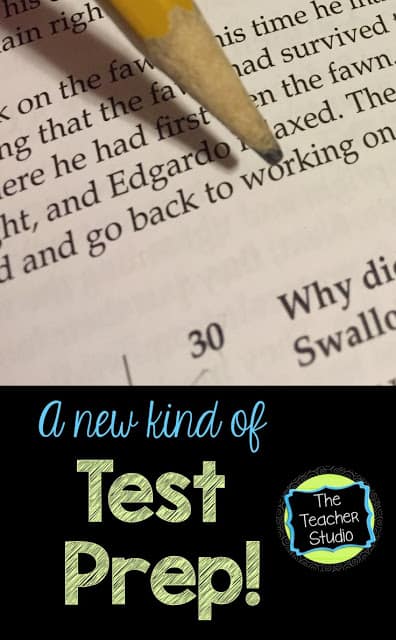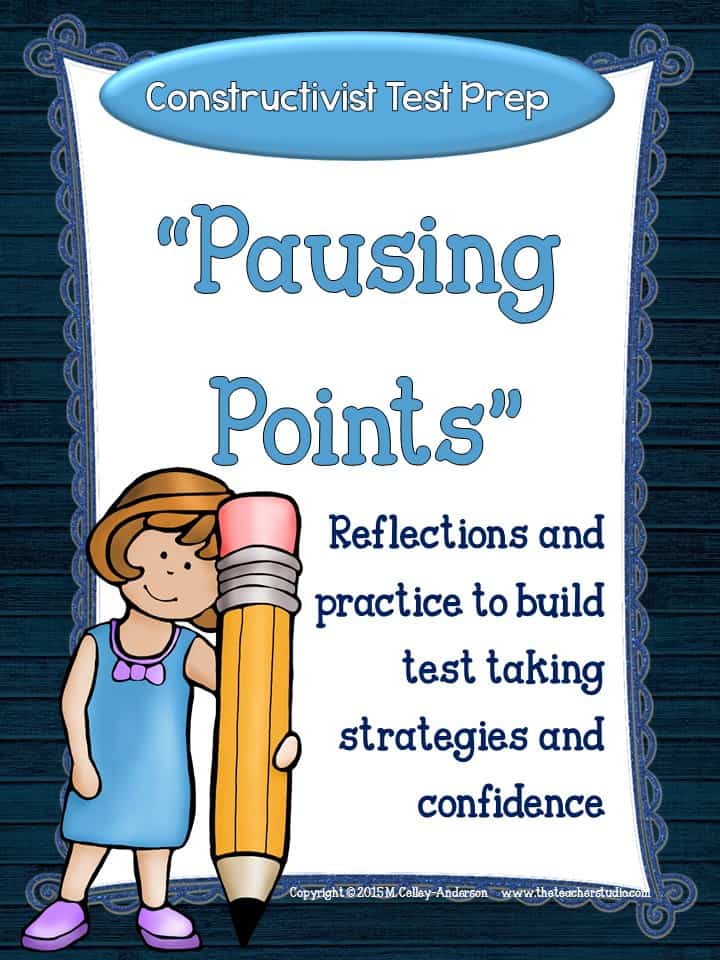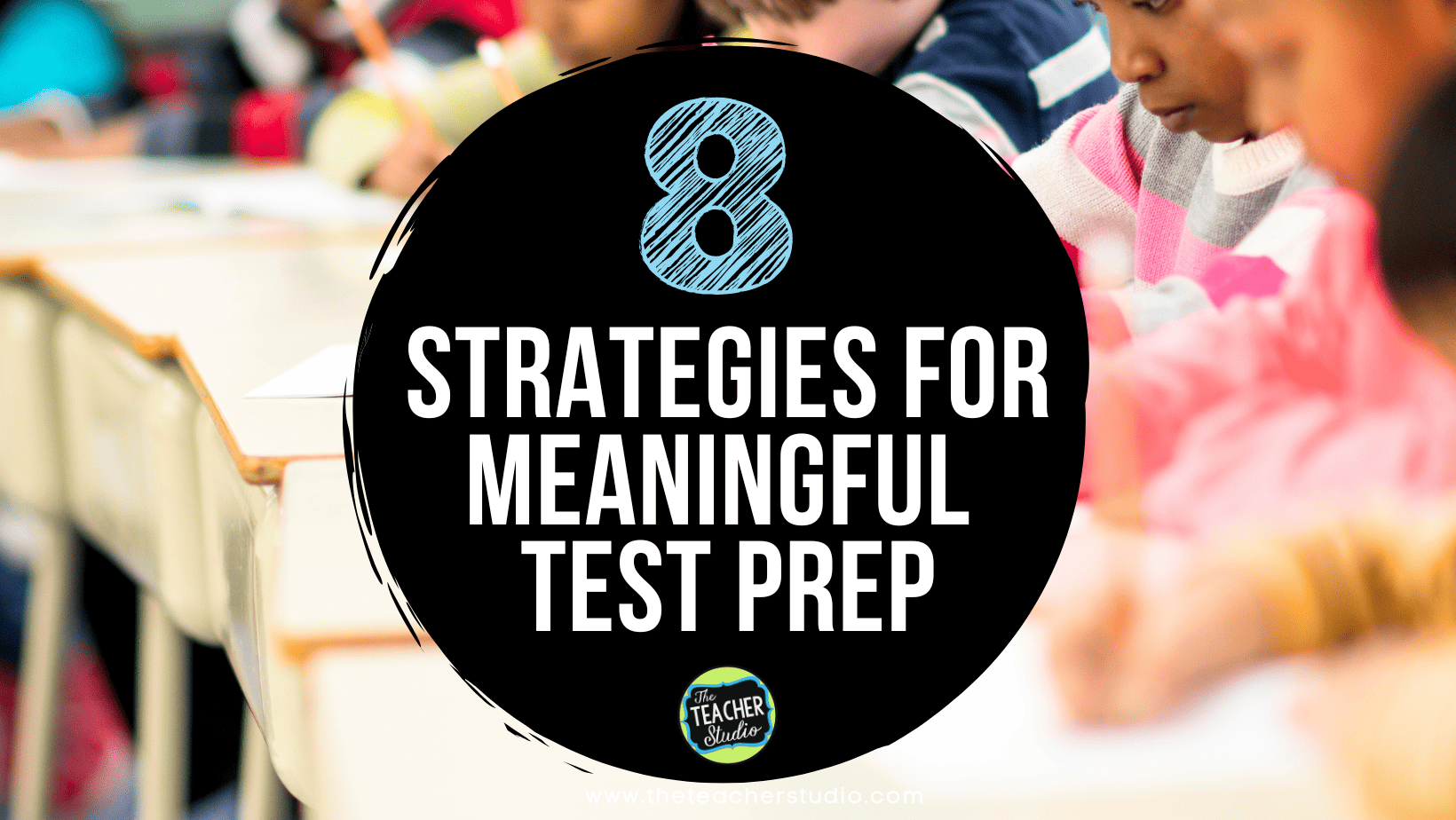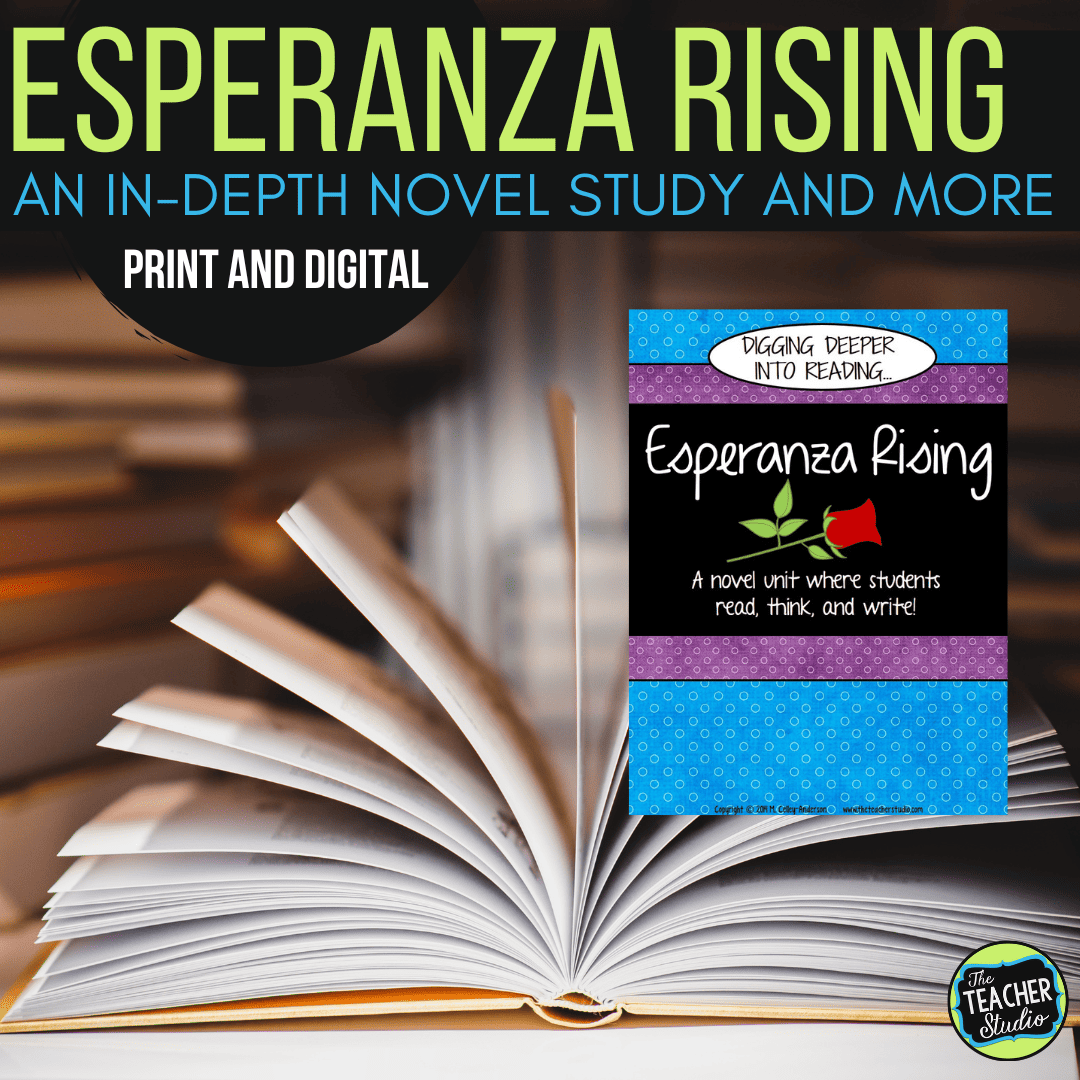This is the time of year that many teachers dread.
The. Test.
I am a believer (to a degree) in some forms of standardized testing. Districts need to get some feedback on how their students and programs are performing. That being said, the evolution of testing into high stakes, pressure-riddled experiences for teachers and students about sends me over the edge.
Teachers around the country are worried about if they are preparing their students well enough. If they have given them enough practice opportunities. If they have spent their instructional minutes providing them with EXACTLY the right amount of exposure to what they will see on the test.
I don’t.
I don’t make pages of practice questions. I don’t do a “real” test preparation unit. I don’t provide ongoing practice on key skills I know will be on the test. It’s not worth my time. I’m not preparing a group of students to be test takers. I am teaching them how to think and how to learn and how to tackle ANY problem they encounter–with energy, with perseverance, and with an “I can do this!” attitude.
In my heart of hearts, I truly believe that students who can read, who can think, who are willing to try will do as well or BETTER than students who are given hours of fill in the blank practice. I want students to learn how to do well on these tests without me telling them what to do and spending hours of their precious time drilling. I want them to DISCOVER how to be successful by putting them in situations where they can learn this genre in a meaningful way. Now–before you accuse me of doing my students a disservice, let me tell you what I DO do!
1. I do teach my students about multiple choice questions. In fact, I try to get them in the minds of a test writer by teaching them about distractors and even having them try writing questions with a right answer, a distractor, and two other relevant answers. We even talk about the art of “coloring the bubble”.
2. I do teach my students about healthy testing behaviors like getting sleep, eating well, and relaxing for best performance.
3. I do teach my students about reading critically, about going back into texts to find answers, about thinking about what authors are trying to tell us.
4. I do teach my students about staying focused and checking over their work.
5. I do teach my students about answering questions fully and providing evidence found in the texts.
6. I do teach my students about what to do when they encounter a challenging problem. We learn all sorts of strategies that gives us POWER…how to reread directions. How to find key words. How to “give it a try” on scratch paper. Even how to SKIP it if it is interfering–and then we come back later.
7. I teach my students about problem solving and looking for patterns.
8. I teach my students to read all sorts of materials…stories…poems…articles…graphs…infographics.
9. I teach my students how to work with stamina so they can sit and complete a task that might take them an hour or so–without losing focus.
10. I teach my students how to be ok with doing their best and having an “I can do it!” attitude. I want them to treat everything they do with that spirit…and to walk away knowing that they did their best–and that’s all they can do. I want my students to walk out after the test feeling great–that they did their job…even when the questions were tough.
Do I do this with packets? Nope. Do I do this for 3 weeks straight? Nope. I do this all year long, when it’s relevant…and BECAUSE it’s relevant.
Now–don’t get me wrong–we DO a practice test or two. In fact, we take it, study it, and break it apart. I have my students hunt for terms they think are tricky like “passage” or “synonym”. We make anchor charts and lists of “things to know” about taking tests. We practice this in a quiet room to mimic testing situations. We talk about filling in the bubbles neatly and checking over our work so we don’t miss questions. If I taught third grade, I would have to do even more of this because the test is so new. That being said, if we can teach our students to have a great attitude about trying, if they can stay focused and apply what they know, and if they can be successful at whatever task they are handed!
How are my test scores, you might ask? My principal called me in several years ago to ask what I do…because my scores were SO much higher than the average. It was hard for me to explain. I told her, “I teach students how to learn, how to work, and how to try.”
One resource that has been super helpful to me is the book “Test Talk” by Amy Greene and Glennon Melton. It gives some GREAT suggestions for how to incorporate test taking strategies into your reading workshop. Check out the link below for more details.
One final thing I do is ask my students to talk and write about all the ideas mentioned above. It needs to be more than me TELLING them these things…they need to be able to process them and construct their own meaning. I have put a lot of this together in an unusual test prep resource–in case you are interested! Thanks for stopping by–and good luck on the tests. Make sure you keep it positive and give your students the power to do well AND feel good about it!







